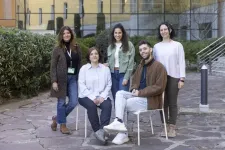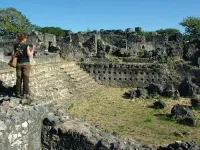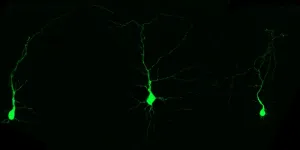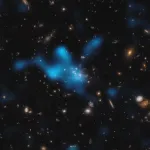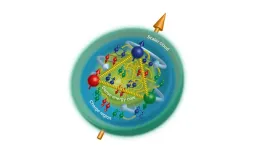(Press-News.org) Research by the Milner Centre for Evolution at the University of Bath, UK, along with colleagues at Universities of Oxford and Aberdeen, finds that trust in scientists has hugely increased overall since the COVID-19 pandemic, but that attitudes have also become more polarized. The study also found that people were more likely to take the COVID-19 vaccine if their trust in the science had increased.
Whether it be climate change, vaccines or GM foods, trust in science and scientists has rarely been more important. But can trust be changed? Does change in trust reflect change in behaviour?
Using data from a survey of over 2000 UK adults commissioned by the Genetics Society, the team asked individuals whether their trust in scientists had gone up, down or stayed the same.
A third of people reported that their trust in scientists had gone up. To see whether this was associated with the COVID-19 pandemic response, they were also asked whether trust in “geologists” and “geneticists” had changed, geologists having no obvious involvement with the COVID-19 response, and with geneticists being involved but with less prominent recognition for their involvement.
They found that very few reported a change in trust in geologists but many increased trust in geneticists.
Participants were also asked about their change in trust in the pharmaceutical industry. When Pfizer, a company that made COVID-19 vaccines, was used as an example, more people reported a positive response than when GlaxoSmithKline, a company not associated with the COVID-19 vaccine, was mentioned.
These results indicate that science activity and communication during COVID-19 pandemic has for the most part led to increased trust, in contrast with reports from much earlier in the pandemic.
When the team investigated why there was variation in people’s response, they found that, even controlling for multiple demographic factors (educational attainment, political inclination, religious belief and age), people who reported holding a negative view of science prior to the pandemic had become even more negative.
In contrast, those who were originally positive had become even more positive.
Perhaps most significantly, when they asked people if they have had or plan to have the vaccine, those reporting increased trust were most likely to take the COVID-19 vaccine. Those preferring not to do so reported a decline in trust.
Professor Laurence Hurst, from the Milner Centre for Evolution, said: “Our research shows that although trust in science has increased overall, it has also become more polarised.
“Why does this matter? For many years it was assumed that scientific knowledge is what determines attitude to science, hence the proliferation in science communication activities to increase understanding.
“Our study provides evidence to support the theory that trust, rather than knowledge is what matters. This research also suggests that activity to increase trust does indeed affect behaviours.
“But the same strategies can also backfire causing some to be even more entrenched.”
The research was led by Sofia Radrizzani, an undergraduate student at the Milner Centre for Evolution when she performed this research and Professor Laurence Hurst, and is published in PLOS One.
The study was funded by the Genetics Society.
END
The COVID-19 pandemic has increased – but also polarised – trust in science
Research shows trust in science is more important than knowledge, when it comes to affecting behaviours.
2023-03-29
ELSE PRESS RELEASES FROM THIS DATE:
DoD funds new project aimed at protecting global supply chains, infrastructure
2023-03-29
Thanks to the work of Arizona Sen. Mark Kelly, a new project led by Northern Arizona University, with various collaborators throughout the nation, will help the United States better protect the critical supply chain infrastructure and the supply chains that keeps the country and its economy running.
Benjamin Ruddell, professor in the School of Informatics, Computing, and Cyber Systems and founder of the FEWSION project, is the NAU lead. Funded at $8 million for year one, the project aims to work with technology known as Fused Global Data Analytics and Visualization. The team’s leadership, ...
CNIO researchers help to understand the functioning of the protein that makes DNA loops in the human genome
2023-03-29
Cohesin is a ring-shaped protein that surrounds and moves around the DNA molecule, forming the loops. It is a crucial process for the cell.
Understanding how cohesin works has been one of the challenges of molecular biology in recent decades.
The work now published by Ana Losada's group at CNIO will serve to deepen our understanding of the disease known as Cornelia de Lange syndrome.
At the end of the 1990s, Ana Losada, a researcher at the Spanish National Cancer Research Centre (CNIO), then at the Cold Spring Harbor Laboratory (New York, USA), discovered a protein in frogs of the Xenopus genus that is fundamental to ...
AI could set a new bar for designing hurricane-resistant buildings
2023-03-29
Being able to withstand hurricane-force winds is the key to a long life for many buildings on the Eastern Seaboard and Gulf Coast of the U.S. Determining the right level of winds to design for is tricky business, but support from artificial intelligence may offer a simple solution.
Equipped with 100 years of hurricane data and modern AI techniques, researchers at the National Institute of Standards and Technology (NIST) have devised a new method of digitally simulating hurricanes. The results of a study published today in Artificial Intelligence for the Earth Systems demonstrate that the simulations can accurately ...
Caesarean Scar Disorder: International study led by Amsterdam UMC defines a clinical condition
2023-03-29
More than 30% of women who give birth by caesarean section suffer from long-term symptoms, such as abdominal pain, blood loss or fertility problems. These symptoms are caused by an abnormal uterine scar. This condition is defined now for the first time, thanks to an international study led by Amsterdam UMC, as Caesarean Scar Disorder (CSDi). This gives women recognition for these problems after a caesarean section. In addition, international studies on CSDi can now be better compared with each other, providing more insight into treatment options. The research is published today in JAMA Network Open.
In ...
Ancient DNA reveals African and Asian ancestry of medieval Swahili people
2023-03-29
People living on the ‘Swahili coast’ - the Indian Ocean coast of eastern Africa - have African and Asian ancestry according to new research on ancient DNA.
Archaeologists believe that the results, based on finds from excavations, including those directed by Professor Stephanie Wynne-Jones from the University of York and Professor Jeffrey Fleisher at Rice University, confirm that relationships between Asian merchants and African traders were formed between the years 900 and 1100 in ...
Feed them or lose them
2023-03-29
Brain development consists of a sequence of coordinated steps, which are mainly instructed by our genes. During these steps, the proper positioning and functionality of nerve cells in the brain (neurons) are critical—nonfunctional or incorrectly positioned neurons can lead to severe neuropathological consequences. Mutations in genes coordinating this program are often linked to neurodevelopmental disorders; however, environmental stressors such as nutrient scarcity or malnutrition can also influence the development of the brain. Still, very little is known about the importance of specific nutrients ...
Astronomers witness the birth of a very distant cluster of galaxies from the early Universe
2023-03-29
Using the Atacama Large Millimeter/submillimeter Array (ALMA), of which ESO is a partner, astronomers have discovered a large reservoir of hot gas in the still-forming galaxy cluster around the Spiderweb galaxy — the most distant detection of such hot gas yet. Galaxy clusters are some of the largest objects known in the Universe and this result, published today in Nature, further reveals just how early these structures begin to form.
Galaxy clusters, as the name suggests, host a large number of galaxies — sometimes even thousands. They also contain a vast “intracluster medium” (ICM) of ...
Ancient DNA reveals Asian ancestry introduced to East Africa in early modern times
2023-03-29
At a glance:
Who were the people of the medieval Swahili civilization? Ancient DNA reveals African founders intermingled with migrants from southwest Asia around 1000 CE
Findings complicate scientific views as well as colonial-era beliefs
For the first time, analyses determine that some present-day Kenyans who identify as Swahili are genetically very different from medieval residents of the same region, while others have retained substantial medieval ancestry
While serfs toiled and knights jousted in Europe and samurai and shoguns rose to power in Japan, the ...
Charming experiment finds gluon mass in the proton
2023-03-29
NEWPORT NEWS, VA – Nuclear physicists may have finally pinpointed where in the proton a large fraction of its mass resides. A recent experiment carried out at the U.S. Department of Energy’s Thomas Jefferson National Accelerator Facility has revealed the radius of the proton’s mass that is generated by the strong force as it glues together the proton’s building block quarks. The result was recently published in Nature.
One of the biggest mysteries of the proton is the origin of its mass. It turns out that the proton’s measured mass doesn’t just come from its physical building blocks, its three so-called valence quarks.
“If you add up the ...
Association of receipt of opioid use disorder-related telehealth services and medications for opioid use disorder with fatal drug overdoses
2023-03-29
About The Study: Researchers found in this study that among Medicare beneficiaries initiating opioid use disorder-related care during the COVID-19 pandemic, receipt of opioid use disorder-related telehealth services was associated with reduced risk for fatal drug overdose, as was receipt of medications for opioid use disorder from opioid treatment programs and receipt of buprenorphine in office-based settings.
Authors: Christopher M. Jones, Pharm.D., Dr.P.H., M.P.H., of the Centers for Disease Control and ...
LAST 30 PRESS RELEASES:
Study finds more parents saying ‘No’ to vitamin K, putting babies’ brains at risk
Scientists develop new gut health measure that tracks disease
Rice gene discovery could cut fertiliser use while protecting yields
Jumping ‘DNA parasites’ linked to early stages of tumour formation
Ultra-sensitive CAR T cells provide potential strategy to treat solid tumors
Early Neanderthal-Human interbreeding was strongly sex biased
North American bird declines are widespread and accelerating in agricultural hotspots
Researchers recommend strategies for improved genetic privacy legislation
How birds achieve sweet success
More sensitive cell therapy may be a HIT against solid cancers
Scientists map how aging reshapes cells across the entire mammalian body
Hotspots of accelerated bird decline linked to agricultural activity
How ancient attraction shaped the human genome
NJIT faculty named Senior Members of the National Academy of Inventors
App aids substance use recovery in vulnerable populations
College students nationwide received lifesaving education on sudden cardiac death
Oak Ridge National Laboratory launches the Next-Generation Data Centers Institute
Improved short-term sea level change predictions with better AI training
UAlbany researchers develop new laser technique to test mRNA-based therapeutics
New water-treatment system removes nitrogen, phosphorus from farm tile drainage
Major Canadian study finds strong link between cannabis, anxiety and depression
New discovery of younger Ediacaran biota
Lymphovenous bypass: Potential surgical treatment for Alzheimer's disease?
When safety starts with a text message
CSIC develops an antibody that protects immune system cells in vitro from a dangerous hospital-acquired bacterium
New study challenges assumptions behind Africa’s Green Revolution efforts and calls for farmer-centered development models
Immune cells link lactation to long-lasting health
Evolution: Ancient mosquitoes developed a taste for early hominins
Pickleball players’ reported use of protective eyewear
Changes in organ donation after circulatory death in the US
[Press-News.org] The COVID-19 pandemic has increased – but also polarised – trust in scienceResearch shows trust in science is more important than knowledge, when it comes to affecting behaviours.
